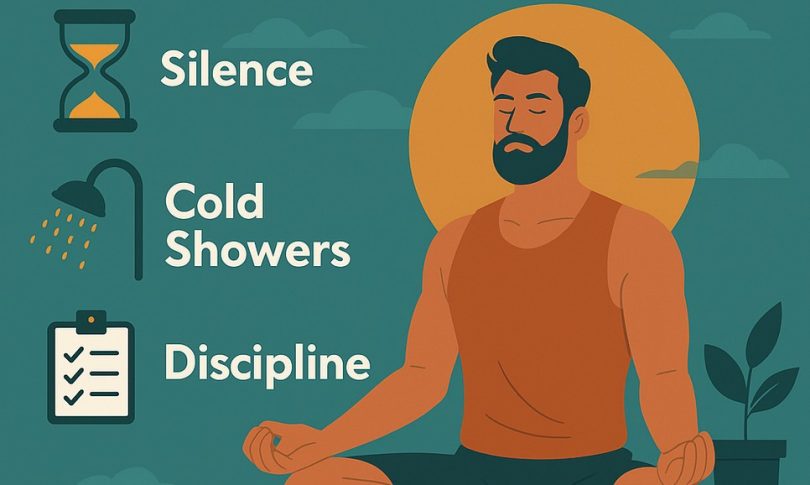Table of Contents
- Understanding Health Literacy
- Impact of Health Literacy on Productivity
- How Health Literacy Enhances Productivity
- Overcoming Barriers to Health Literacy
- Practical Tips for Improving Health Literacy and Productivity
- Case Studies and Success Stories
Key Takeaways:
- Health literacy is essential for making informed decisions about personal health.
- Improving health literacy can lead to increased productivity in various aspects of life.
- Access to healthcare services and prevention of diseases are key components of health literacy.
- Overcoming barriers such as socio-economic factors and cultural influences is crucial for enhancing health literacy.
- Practical tips include education, utilization of digital resources, and cultivating healthy habits.
- Real-life examples demonstrate the positive impact of health literacy on productivity.
Understanding Health Literacy
What is health literacy?
Health literacy is not just about being able to read medical instructions; it’s about comprehending health-related information, evaluating its credibility, and applying it to make informed decisions about one’s health.
Importance of health literacy in modern society
In today’s information age, where misinformation is rampant, having the skills to decipher accurate health information is more critical than ever. Health literacy empowers individuals to take control of their health, leading to better outcomes and reduced healthcare costs.
Factors influencing health literacy
Several factors can influence an individual’s health literacy, including educational attainment, socio-economic status, language proficiency, and access to healthcare resources. Understanding how health literacy can help people become more productive is crucial for addressing these factors and improving overall health literacy levels within a population.

Impact of Health Literacy on Productivity: How Health Literacy Enhances Individuals’ Ability to Become More Productive
Health literacy has a profound impact on productivity, influencing various aspects of an individual’s personal and professional life. By understanding and managing their health effectively, individuals can optimize their physical and mental well-being, leading to increased efficiency and effectiveness in their daily activities.
Mental health and productivity correlation
Mental health, a crucial determinant of productivity, underscores the importance of how health literacy can help people become more productive. Poor mental health often results in reduced focus, motivation, and overall performance. Conversely, individuals with good mental health, facilitated by health literacy, effectively manage stress, problem-solve, and nurture positive relationships, all vital for productivity.
Physical health and productivity linkages
The connection between physical health and productivity is well-established. Chronic health conditions, such as obesity, diabetes, and cardiovascular disease, can significantly impair an individual’s ability to perform daily tasks effectively. By managing their physical health through regular exercise, balanced nutrition, and preventive care, individuals can enhance their productivity and overall quality of life.

Emotional well-being and its role in productivity: How can health literacy contribute to enhancing individuals’ effectiveness?
Emotional well-being significantly impacts productivity, as it encompasses various facets of one’s mental state. Through emotional intelligence, individuals gain skills such as self-awareness, self-regulation, empathy, and social skills. These abilities enable them to effectively manage their emotions and navigate interpersonal relationships with ease. By prioritizing emotional well-being and practicing mindfulness and stress management techniques, individuals can enhance their productivity and resilience in the face of challenges.
How Health Literacy Enhances Productivity
Health literacy enhances productivity through various mechanisms, all of which contribute to improved overall well-being and performance. By empowering individuals to take proactive steps towards managing their health, health literacy enables them to optimize their physical, mental, and emotional well-being, thereby enhancing their productivity in all aspects of life.
Access to healthcare and its influence on productivity
Access to timely and affordable healthcare services is essential for maintaining good health and preventing the onset of diseases. Individuals with high health literacy are better equipped to navigate the healthcare system, access appropriate medical care, and adhere to treatment plans, all of which contribute to improved health outcomes and productivity.

Prevention of diseases and its impact on productivity
Preventive care, including vaccinations, screenings, and health assessments, is crucial for identifying and addressing health issues before they escalate into more significant problems. By promoting preventive behaviors and early intervention, health literacy can help individuals avoid costly and debilitating health conditions, thus preserving their productivity and quality of life.
Adoption of Healthy Lifestyle Choices: Leveraging Health Literacy for Enhanced Productivity
Healthy lifestyle choices, such as regular exercise, nutritious diet, adequate sleep, and stress management, are fundamental pillars of good health. Individuals with high health literacy are more likely to engage in these behaviors, leading to improved physical fitness, mental clarity, and overall well-being, all of which are conducive to higher levels of productivity.

Overcoming Barriers to Health Literacy
Despite its importance, health literacy faces several barriers that hinder individuals from accessing and understanding health information effectively. However, understanding how health literacy can help people become more productive can mitigate these barriers. These obstacles can range from socio-economic factors to cultural influences, all of which contribute to disparities in health outcomes and productivity levels.
Socio-economic factors affecting health literacy
Socio-economic status plays a significant role in determining access to healthcare resources and health literacy levels. Individuals from low-income backgrounds may face barriers such as limited access to healthcare facilities, financial constraints, and inadequate health education, which can negatively impact their health outcomes and productivity.
Cultural influences on health literacy
Cultural beliefs and practices can influence how individuals perceive and interpret health information. Language barriers, cultural norms, and mistrust of healthcare systems can impede effective communication and understanding of health-related messages, leading to disparities in health literacy and productivity among different cultural groups.
Strategies to improve health literacy
Addressing barriers to health literacy requires a multi-faceted approach that involves collaboration between healthcare providers, policymakers, educators, and community organizations. Some strategies to improve health literacy include:
- Implementing culturally sensitive health education programs
- Providing language interpretation services for non-native speakers
- Increasing access to affordable healthcare services
- Empowering individuals through health literacy workshops and resources
- Integrating health literacy into school curricula and workplace wellness programs

Practical Tips for Improving Health Literacy and Productivity: How Health Literacy Can Enhance Productivity
Improving health literacy and productivity requires a proactive approach that involves adopting healthy habits, seeking reliable health information, and actively engaging in self-care practices. By incorporating these practical tips into daily life, individuals can enhance their overall well-being and productivity.
Importance of education and awareness
Education, a cornerstone of enhancing health literacy, plays a pivotal role in equipping individuals with the necessary tools to make informed decisions about their well-being. By seeking reliable sources of health information, including reputable websites, healthcare providers, and government agencies, individuals can bolster their understanding of how health literacy can help people become more productive. Furthermore, raising awareness about the significance of health literacy through public health campaigns and community outreach programs empowers individuals to take proactive steps towards optimizing their productivity and overall health.
Utilization of digital health resources
In today’s digital age, there is a wealth of digital health resources available at our fingertips. From mobile apps to online portals, these resources provide valuable information and tools for managing various aspects of health, from tracking fitness goals to monitoring chronic conditions. By harnessing the power of technology, individuals can access timely and relevant health information anytime, anywhere.

Cultivation of healthy habits and routines
Healthy habits, supported by a strong foundation of health literacy, are pivotal for optimal well-being and productivity. Incorporating regular exercise, balanced nutrition, adequate sleep, and stress management techniques into daily routines, guided by how health literacy can help people become more productive, can profoundly impact physical and mental health. By prioritizing self-care and making informed decisions, individuals can enhance their energy levels, focus, and productivity throughout the day.
Case Studies and Success Stories
Real-life examples provide compelling evidence of the positive impact of health literacy on productivity. Let’s explore a few case studies and success stories that illustrate the transformative power of health literacy in various contexts:
Case Study 1: Workplace Wellness Program
In a corporate setting, implementing a workplace wellness program focused on improving health literacy among employees led to significant improvements in productivity and job satisfaction. By offering educational workshops, access to preventive screenings, and incentives for healthy behaviors, employees were able to better manage their health and reduce absenteeism, resulting in a more engaged and productive workforce.
Case Study 2: Community Health Initiative
In a community setting, a health literacy initiative aimed at empowering residents with the knowledge and skills to make informed health decisions resulted in improved health outcomes and quality of life. Through targeted outreach efforts, culturally sensitive education materials, and partnerships with local organizations, community members were able to overcome barriers to health literacy and access essential healthcare services, leading to healthier and more productive lives.
Frequently Asked Questions (FAQs)
1. What are the benefits of being health literate?
Being health literate offers numerous benefits, including:
- Better understanding of health information
- Ability to make informed decisions about personal health
- Improved communication with healthcare providers
- Enhanced ability to manage chronic conditions
- Reduced healthcare costs
2. How does health literacy affect work performance?
Health literacy directly impacts work performance by influencing factors such as:
- Employee engagement and morale
- Absenteeism and presenteeism
- Workplace safety and injury prevention
- Healthcare utilization and productivity
3. Can improving health literacy lead to financial gains?
Yes, improving health literacy can lead to financial gains by:
- Reducing healthcare costs through preventive care and early intervention
- Minimizing productivity losses associated with absenteeism and presenteeism
- Increasing earning potential through improved job performance and career advancement
4. Are there any tools or resources available to enhance health literacy?
Yes, there are various tools and resources available to enhance health literacy, including:
- Online health portals and mobile apps
- Health education materials and workshops
- Community health centers and support groups
- Health literacy assessments and training programs
5. How can organizations promote health literacy among employees?
Organizations can promote health literacy among employees by:
- Offering workplace wellness programs
- Providing access to health education resources
- Integrating health literacy into corporate communications
- Encouraging open dialogue about health and wellness
6. Is there a correlation between health literacy and job satisfaction?
Yes, there is a correlation between health literacy and job satisfaction. Individuals with higher health literacy levels tend to experience:
- Greater job satisfaction
- Lower stress levels
- Improved work-life balance
- Enhanced overall well-being
7. What role does government policy play in improving health literacy?
Government policy plays a crucial role in improving health literacy by:
- Implementing health education initiatives in schools and communities
- Regulating healthcare communication and advertising
- Investing in public health infrastructure and resources
- Supporting research on health literacy interventions
8. Are there any specific demographics more prone to low health literacy?
Yes, certain demographics are more prone to low health literacy, including:
- Individuals with lower levels of education
- Non-native speakers of the primary language
- Elderly populations
- Low-income and marginalized communities
-
- CDC Health Literacy – Explore resources and research on health literacy from the Centers for Disease Control and Prevention.
- Healthy People 2020 – Learn about the social determinants of health and how they influence health outcomes and productivity.
- World Health Organization: Health Literacy – Access information and publications on health literacy from the World Health Organization.






